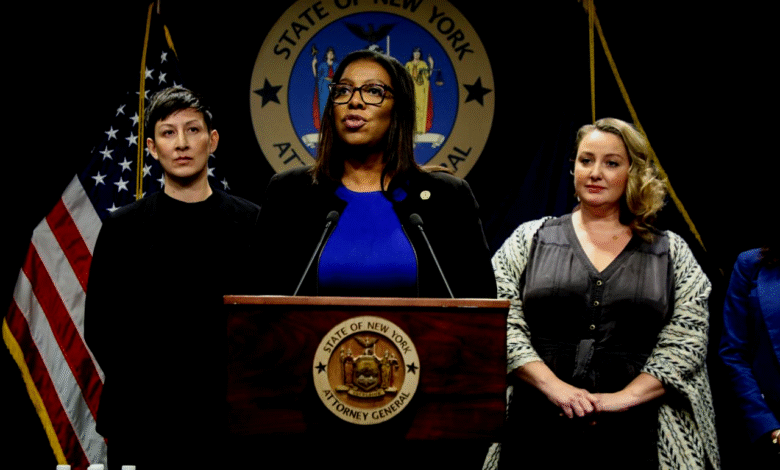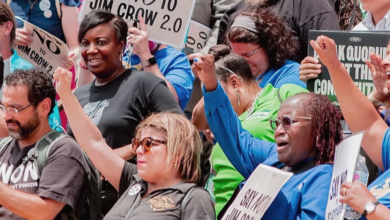How to File a Civil Rights Lawsuit in New York
Civil rights lawsuit in New York Learn how to file required steps evidence needed and legal options for justice in discrimination or rights violation cases.

Filing a civil rights lawsuit in New York is a critical step for individuals seeking justice when their constitutional or legal rights have been violated. Whether the issue involves police misconduct, workplace discrimination, housing inequality, or denial of public services, understanding the legal process is essential to protecting your rights. New York has strong state and federal laws designed to safeguard civil liberties, but navigating the court system requires careful preparation, proper documentation, and often, legal representation.
If you believe your rights have been infringed upon, taking swift action is crucial, as civil rights claims are subject to strict deadlines. This guide will walk you through the key steps involved in filing a civil rights lawsuit in New York, from identifying the legal basis of your claim to presenting your case in court. By following the correct procedures and seeking expert legal advice, you can hold violators accountable and pursue the justice you deserve.
How to File a Civil Rights Lawsuit in New York
Types of Civil Rights Violations in New York
New York law provides robust protections against civil rights violations through both federal and state statutes, covering a wide range of unlawful conduct. Among the most prevalent violations is police misconduct, including excessive force, false arrests, and illegal searches, which can be challenged under 42 U.S.C. § 1983 for constitutional violations by government actors. Employment discrimination represents another major category, where workers may face illegal bias based on race, gender, age (40+), disability, religion, sexual orientation, or other protected characteristics under Title VII of the Civil Rights Act of 1964 or the broader New York State Human Rights Law.
Jurisdictional Considerations
When deciding whether to pursue a civil rights claim in federal or state court, the nature of the violation and applicable laws are critical determining factors. Federal claims, typically brought under statutes like 42 U.S.C. § 1983 for constitutional violations or the Americans with Disabilities Act (ADA), generally involve allegations against government entities or officials and must be filed in U.S. District Court. In contrast, state law claims under New York Executive Law § 296 (the Human Rights Law) frequently require plaintiffs to first exhaust administrative remedies by filing with the New York State Division of Human Rights (NYSDHR) before proceeding to litigation in New York Supreme Court.
Steps to File a Civil Rights Lawsuit in New York
Identify the Legal Basis for Your Claim
The foundation of any successful civil rights lawsuit in New York begins with precisely identifying which protected right was violated. This crucial first step requires examining whether the harm involves constitutional violations (like First Amendment retaliation or Fourth Amendment excessive force), statutory protections (such as workplace discrimination under Title VII or ADA accommodations denials), or state law guarantees (including broader protections under the NY Human Rights Law). Potential plaintiffs should carefully document whether the violation occurred in employment (race/age/gender discrimination).
Gather Evidence
Building a compelling civil rights case in New York requires gathering strong, documented evidence to substantiate your claims. Essential documentation includes official police reports (for misconduct cases), notarized witness statements corroborating your account, and medical records documenting injuries in cases of physical harm. Digital evidence like time-stamped photographs, video footage, and preserved text/email communications can prove particularly powerful in establishing timelines and intent.
File an Administrative Complaint
Before filing a civil rights lawsuit in New York, many claims require first exhausting administrative remedies through government agencies a crucial step that preserves your right to later sue in court. Employment discrimination cases must typically be filed with either the federal Equal Employment Opportunity Commission (EEOC) or the New York State Division of Human Rights (NYSDHR) within strict deadlines (as short as 180-300 days from the incident).
Consult with an Attorney
Navigating a civil rights lawsuit in New York often involves complex legal procedures and nuanced constitutional arguments that make professional legal representation invaluable. Experienced civil rights attorneys understand how to properly frame your claim, navigate procedural hurdles, and counter common defense tactics used by government entities or employers. Importantly, many civil rights lawyers work on a contingency fee basis they only collect fees (typically a percentage of your settlement or award) if they successfully resolve your case.
Draft and File the Complaint
The formal initiation of your civil rights lawsuit begins with drafting a meticulously prepared legal complaint, a foundational document that establishes your case’s framework. This critical filing must clearly identify all parties involved, present a factual narrative detailing the civil rights violation with specific dates and incidents, and articulate the precise legal theories under which you’re seeking relief whether constitutional, statutory, or common law claims.
Serve the Defendant
Proper service of process is a critical step that gives the court jurisdiction over your civil rights case. In New York, defendants must be personally served with the summons and complaint by an authorized process server, sheriff, or other disinterested adult (age 18+). The server must follow strict procedures physically delivering documents to the defendant or, in some cases, to a suitable proxy at their home or workplace. For government entities, service often requires delivery to designated officials.
Proceed with Litigation
The discovery phase marks a pivotal stage in civil rights litigation where both parties systematically gather evidence to build their cases. During this intensive process, your attorney will employ various legal tools including written interrogatories (formal questions requiring sworn answers), requests for production of documents (demanding relevant records like personnel files or police reports), and depositions (compelling key witnesses to provide sworn testimony).
Trial and Judgment
The trial phase represents the culmination of your civil rights lawsuit, where a judge or jury evaluates the evidence and determines whether your rights were violated. During trial, both sides present witnesses, documentary evidence, and expert testimony to support their positions. If successful, the court may award various forms of relief: compensatory damages for actual losses (medical bills, lost wages, emotional distress).
Read More: Factors that Affect the Success of International Extradition Requests
Conclusion
Pursuing a civil rights lawsuit in New York is a powerful way to seek justice and hold violators accountable when your fundamental rights have been violated. While the legal process can be complex, understanding the necessary steps from gathering evidence to filing in the appropriate court can significantly strengthen your case. Whether your claim involves discrimination, excessive force, or other civil rights abuses, taking timely action with the guidance of an experienced attorney can make a crucial difference in achieving a favorable outcome.
Ultimately, filing a civil rights lawsuit in New York not only helps you obtain compensation or corrective measures but also contributes to broader societal change by challenging unlawful practices. If you believe your rights have been violated, don’t hesitate to seek legal counsel and explore your options justice is not just a right, but a responsibility worth pursuing.
FAQs
How long do I have to file a civil rights lawsuit in New York?
Most federal civil rights claims have a 3-year statute of limitations, while state claims may vary. Employment discrimination cases require filing with the EEOC within 300 days.
Can I sue for police misconduct in New York?
Yes, victims of police brutality or misconduct can file a Section 1983 lawsuit in federal court or a claim under New York state law.
Do I need a lawyer to file a civil rights lawsuit?
While not required, having an attorney improves your chances of success, especially in complex cases against government entities.
What damages can I recover in a civil rights lawsuit?
Possible damages include compensation for medical bills, emotional distress, lost wages, and punitive damages in cases of extreme misconduct.
Can I file a civil rights lawsuit against a private employer?
Yes, if the discrimination violates federal or state laws (e.g., Title VII, NYSHRL). However, you must first file with the EEOC or NYSDHR before suing.











